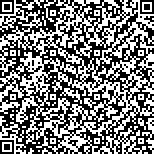| 引用本文: |
陈昱彤,喻嵘,谭艳,吴勇军,向琴,刘秀.血管性认知障碍的中医证型、证素分布及用药规律[J].湖南中医药大学学报,2021,41(6):869-874[点击复制] |
|
| |
|
|
| 本文已被:浏览 3455次 下载 2257次 |
| 血管性认知障碍的中医证型、证素分布及用药规律 |
| 陈昱彤,喻嵘,谭艳,吴勇军,向琴,刘秀 |
| (湖南中医药大学, 湖南 长沙 410208) |
| 摘要: |
| 目的 基于数据挖掘技术探究血管性认知障碍的中医临床证型、证素分布及其用药规律,为临床治疗提供有利参考。方法 以中国学术期刊全文数据库(CNKI)、维普网和万方数据库为文献来源,统计建库至2020年7月31日符合要求的治疗血管性认知障碍的有效处方,运用统计软件分析纳入文献的中医证型、证素分布及药物频次、功效分类、关联规则分析和聚类分析。结果 共选入文献115篇,涉及患者5 365例,含中医证型25种,拆分得到病性证素11个,病位证素6个,频数最高的证型为痰瘀互结证,主要病性为血瘀、痰、气虚、精亏,主要病位为脑和肾。共录入中药处方121首,含中药177味,使用频率前10的核心药物为川芎、石菖蒲、丹参、黄芪、熟地黄、远志、当归、甘草、赤芍、桃仁;常用药物种类为补虚药和活血化瘀药;通过药物关联分析,同现频次最高的药物组合为川芎-石菖蒲,置信度最高的药对是郁金-石菖蒲;对频数 ≥ 25次的核心药物进行聚类分析,能得到活血化瘀与益气化痰两种聚类方。结论 血管性认知障碍证型多为虚实夹杂之证,以肾虚髓亏为本,痰瘀阻窍为标,治疗主张益精补肾、活血化瘀、化痰开窍。 |
| 关键词: 血管性认知障碍 证型 证素 中医传承计算平台 用药规律 |
| DOI:10.3969/j.issn.1674-070X.2021.06.009 |
| 投稿时间:2021-03-08 |
| 基金项目:国家重点研发计划(2018YFC1704300);国家自然科学基金项目(82074400,82004185);中医方证研究转化医学湖南省重点实验室(2018TP1021);湖南省教育厅科学研究项目(18A220)。 |
|
| Traditional Chinese Medicine Syndrome Types, Syndrome Element Distribution and Medication Rule of Vascular Cognitive Impairment |
| CHEN Yutong,YU Rong,TAN Yan,WU Yongjun,XIANG Qin,LIU Xiu |
| (Hunan University of Chinese Medicine, Changsha, Hunan 410208, China) |
| Abstract: |
| Objective To explore the traditional Chinese medicine (TCM) syndrome types, syndrome element distribution and medication rule of vascular cognitive impairment based on data mining technology, so as to provide a favorable reference for clinical treatment. Methods The Chinese academic journal full-text database (CNKI), VIP Web and Wanfang Data were used as the source of the literature, the effective prescriptions for the treatment of vascular cognitive impairment that met the requirements between the establishment of the database and July 31, 2020 were counted. Statistical software was used to analyze TCM syndrome types, syndrome element distribution, drug frequency, efficacy classification, association rule analysis and systematic cluster analysis of included literatures. Results A total of 115 documents were selected, involving 5 365 patients, containing 25 types of TCM syndromes, 11 disease-related syndrome elements and 6 disease-location syndrome elements were obtained after splitting. The most frequent syndrome type was phlegm and blood stasis. The main nature of diseases were blood stasis, phlegm, Qi deficiency, and essence deficiency. The main disease location was brain and kidney. A total of 121 prescriptions of Chinese medicines were entered, and 177 Chinese medicines were obtained. The top 10 core medicines used were Chuanxiong (Chuanxiong Rhizoma), Shichangpu (Acori Tatarinowii Rhizoma), Danshen (Salviae Miltiorrhizae Radix Et Rhizoma), Huangqi (Astragali Radix), Shudihuang (Rehmanniae Radix Praeparata), Yuanzhi (Polygalae Radix), Danggui (Angelicae Sinensis Radix), Gancao (Glycyrrhizae Radix EtRhizoma), Chishao (Paeoniae Radix Rubra), Taoren (Persicae Semen); commonly used drugs were tonifying drugs and promoting blood circulation and removing blood stasis drugs; through drug association analysis, the drug combination with the highest number of co-occurrences was Chuanxiong (Chuanxiong Rhizoma)-Shichangpu (Acori Tatarinowii Rhizoma), and the drug pair with the highest confidence was Yujin (Curcumae Radix)-Shichangpu (Acori Tatarinowii Rhizoma); cluster analysis of core drugs with frequency ≥25 times, two cluster formulas of promoting blood circulation and removing blood stasis and benefiting Qi and resolving phlegm were obtained. Conclusion Vascular cognitive impairment syndrome is mostly the deficiency and excess, with kidney and marrow deficiency as the root, phlegm blood stasis as the treetop, treatment advocated tonifying essence and kidney, promoting blood circulation and removing blood stasis, resolving phlegm and resuscitation. |
| Key words: vascular cognitive impairment syndrome types syndrome elements traditional Chinese medicine inheritance computing platform medication rule |
|

二维码(扫一下试试看!) |
|
|
|
|




